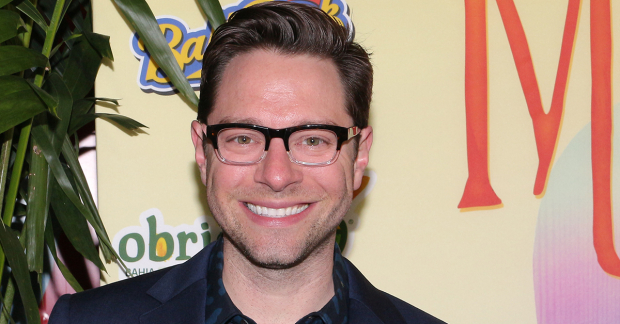Interview: Writer and Director Tim Federle on Adapting Better Nate Than Ever For the Screen
What does it mean to be a "theater kid"?
In 2013, Broadway performer and writer Tim Federle set out to address that experience in a young adult novel titled Better Nate Than Ever. The semiautobiographical story sees a middle schooler named Nate taking a secret trip to New York City to fulfill his dreams of auditioning for a Broadway show.
Since those childhood days of auditioning himself, Federle has had an extensive career in theater and television, most recently as the showrunner for the popular Disney Plus series High School Musical: The Musical: The Series.
On April 1, Disney Plus will release a film adaptation of Better Nate Than Ever, which Federle adapts and directs himself. Ahead of the release, he told us about the experience of bringing his book to life.

(© David Gordon)
This conversation has been condensed and edited for clarity.
Walk me through the decision to direct the film.
It all starts with Lin-Manuel Miranda. Several years ago, the novel of Better Nate Than Ever ended up on his desk. He read it, tweeted about it, and mentioned it in the New York Times. That set off a chain of events where Fox called me and asked if I wanted to come in for a general meeting, which [eventually] led to me adapting the novel as a screenplay. And, while that was happening, I started running the High School Musical series. I think show-running, in many ways, has a direct overlap with directing because it's all about having your head in 30 different places at once.
How did you approach changes to your book during the adaptation process?
It was kind of a joy. The story is so autobiographical that I just had to close my eyes and think about who I was at 13 in Pittsburgh with my best friend who was kind of my Libby. One of the notes I got on the script was to make sure that New York City is a character. This meant the scope and the people on the streets and the excitement and the noise. But a lot of it was also looking at the elements of the book that most spoke to people, which was the coming-of-age adventure, and also Nate's budding identity as somebody who's going to be part of not only the theater community, but the gay community when he gets older.
How did you decide to change the Broadway musical he's auditioning for from E.T. to Lilo & Stitch?
It was two things. The first was that the E.T. rights are tied up, but the bigger reason was the line in Lilo and Stitch: "Family means nobody gets left behind". That is a powerful metaphor for queer people and for theater people which is sometimes a Venn diagram with a big overlap. Also, both E.T. and Stitch are aliens and when I was a middle schooler, I felt like an alien in my school, my community, and sometimes my family. I think what musicals do well is take metaphor and turn them into something that sings.
Was it important to you to incorporate the New Amsterdam Theatre into the film?
Yes. I had this instinct and my executive producer and I were discussing the budget for the film and I suggested that we could go to Vancouver because it would be cheaper. She stopped me and said, "What are you doing? This is a New York City movie. We have to shoot New York." And she was so right. Being in an actual Broadway theater was important to me. It was important also for a kid like Rueby Wood whose dream as a kid in Syracuse was to be on Broadway. And we got to capture the moment that Rueby stepped onto a Broadway stage for the first time. There's a shot that pulls back and reveals Rueby onstage and he just says the word: "Wow." It's so real and really is capturing that moment.
What was the most surprising aspect of directing?
I think the most surprising was that theater trains you how to do everything. Theater kids are trained so early on how to take a note, how to show up on time, how to work in a community of people. And we're also taught at a very early age that, if your wig falls off, you keep dancing. I think the pressures of directing a film was helped by my Broadway background. It's not that it came easy, but I was so grateful for my Broadway background because I truly believe theater kids can do anything.
This film is timely, especially after Disney's response to the "Don't Say Gay" bill. Was there ever any question as to whether Nate's sexuality would be included in the movie?
No question. When the book was acquired, I was given free rein to make the movie I wanted to make. We have so many LGBTQ artists who work on the [High School Musical] show that I was able to bring that to the movie. There was the understanding that, while I didn't want it to feel like some kind of "issue" movie, I couldn't tell a story about a 13-year-old theater kid who was like me without some element of his identity being baked into every scene. And I was very supported in that endeavor.
You have written two more books about Nate. Do you have any ideas for the future of the Better Nate Than Ever franchise onscreen?
Yes, I do and part of it is because Rueby and Aria [Brooks] are such discoveries. What the [High School Musical] series has taught me is that when you find incredibly talented young people who are discovering their own powers and talents, it's thrilling to watch that unfurl. I would love to see Nate and Libby have further adventures.










